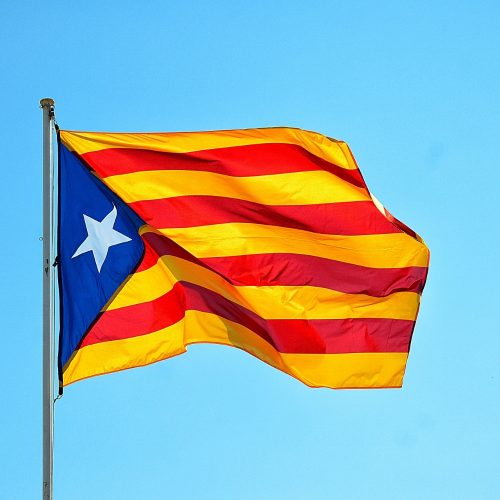
An Introduction to Catalan Politics
Dear Sam,
When we shared our introduction to Catalan history, we mentioned that the topic of the independence in this Autonomous Community is something that has its roots in the history of the region. In the last ten years we have seen more of this move away from being part of Spain and towards becoming a separate nation. While Spain recognizes Catalonia to operate independently on many issues and that Catalan is a nationality, in 2010 it declared that this alone does not make the region a “nation.” The “Independentista” movement has been the answer to this decision and looks to separate Catalonia from the rest of Spain.
Disclaimer: Please note that this is a beginner’s introduction to what is going on in Catalonia and we have written it with the intention of sharing insight into the situation from our point of view and personal experience. We are not experts on the subject and, as an educated reader, you should take the information here with a grain of salt because our experience is based on living mainly in Andalusia and informing ourselves in different ways (although Claudia did live for eight months in Tarragona). Like all political movements, keep in mind that the Independentista one has many facets and can be construed as both wonderful and terrible at the same time, depending on who you ask.
A little Background
This movement is not new. In fact, even when Claudia was living in Catalonia in 2009-2010, small tensions between Catalans and Spanish people were obvious. Of course, you could ask, “Aren’t Catalans Spanish?” or “Isn’t Catalonia part of Spain?” The simple answer to both is “yes,” however, the situation is much more complicated than that. The history of Catalonia has marked the people of this region with a language and a culture that has been developing for hundreds of years. They have been granted certain rights at some points through history and denied representation of the culture in other moments.
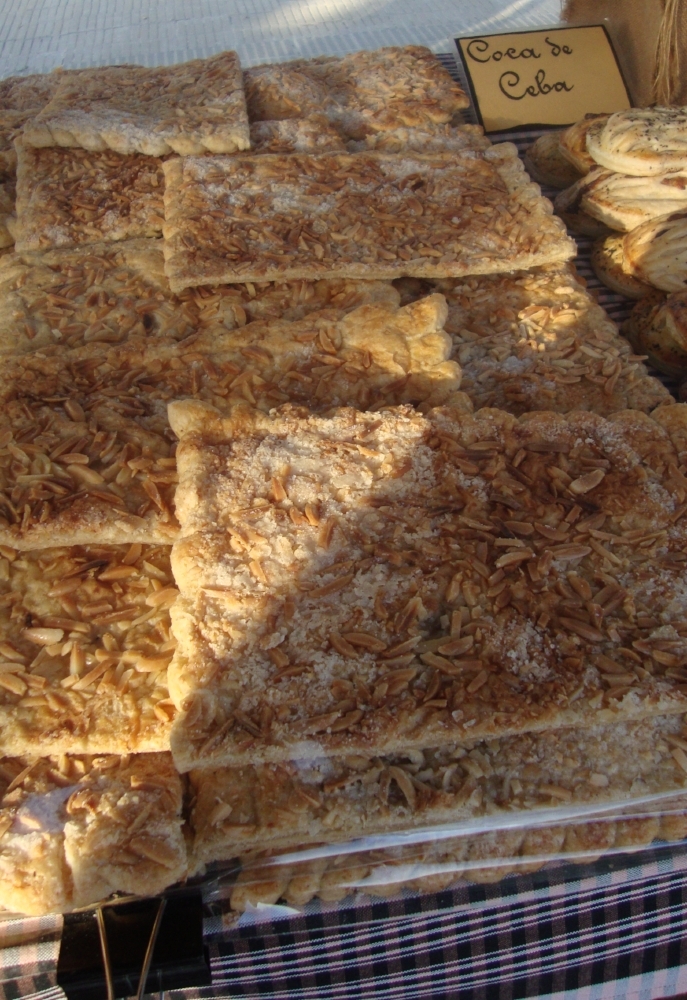 That means that while Catalonia is technically part of Spain, even the Spanish government recognizes that the region is unique. With the fall of the dictatorship led by Francisco Franco, Catalonia was given certain governing rights and, in 2006, was “nation” status. However, like mentioned above, in 2010 a decision was made that the Catalan nationality did not automatically grant Catalonia the right to be a nation. Like most of us can imagine, having a dream dangled in front of you and then, seemingly, taken away would be very frustrating. The people of Catalonia thought so too and in 2010 we saw the newest wave of the Independentista movement come from the region in an attempt to seek independence from Spain.
That means that while Catalonia is technically part of Spain, even the Spanish government recognizes that the region is unique. With the fall of the dictatorship led by Francisco Franco, Catalonia was given certain governing rights and, in 2006, was “nation” status. However, like mentioned above, in 2010 a decision was made that the Catalan nationality did not automatically grant Catalonia the right to be a nation. Like most of us can imagine, having a dream dangled in front of you and then, seemingly, taken away would be very frustrating. The people of Catalonia thought so too and in 2010 we saw the newest wave of the Independentista movement come from the region in an attempt to seek independence from Spain.
Reasons for Catalan Nationality
We acknowledge that there are some cultural and community norms that differ between Catalonia and the rest of Spain. The most obvious, perhaps, would be the language. While Spanish and Catalan have similar roots, they are also different and we can see that Catalan has been influenced by other languages that have passed through the area such as French or Italian (you can learn more about the different languages of Spain in this post).
Note: From Claudia’s experience living there, she found that after about eight months she could understand quite a lot of Catalan but could not speak it.
Perhaps more important than the actual language difference is the way people use it. If you are visiting places outside of Barcelona—a place that still has a majority of Spanish speakers due to the people living there from outside Catalonia and tourism—you may find that people will not want to speak Spanish with you. While all Catalans are technically bi-lingual and are able to speak Spanish, this is an obvious rejection of using the common language.
We did cover this a bit in the post about languages in Spain, but you will find that there was a strong suppression by Franco of the Catalan language, including but not limited to Catalan poetry and literature as well. As we believe that language is a way of shaping yourself and the world that we live in, we can understand how now, with much more political freedom to develop the language and the culture surrounding it, why Catalans choose to use Catalan over Spanish.
You may find that people in other parts of Spain think that the reasons that Catalans won’t speak Spanish is due to some sort of Catalan pride. There is a feeling, at least in Andalusia, that people in Catalonia are very proud of their language and of their economic and social contribution in Spain and that is why they are resisting using Spanish and integrating more into the Spanish community. This can make things complicated when non-Catalan Spaniards visit the region or want to study or live there. For example, in some major universities in this region, some lectures are only in Catalan and international conferences are sometimes held only in this language.
There are also many other unique cultural aspects in this region of Spain (and in all the regions in Spain really), creating distance between groups. Like most places, the holidays and the food are defining factors that help us identify the nuanced differences between Catalonia and the rest of Spain. We personally love cultural differences and were very intrigued to learn about how Catalans make human towers (Castells) during certain festivals and have very special Christmas traditions. They also have regional music and dances that may seem similar to someone from outside of Spain but have meaning to those people who were born and raised in the separate regions.
In addition, you will find many culinary differences between Catalonia and the rest of Spain. While the Basque Country is renowned for being a wonderful place to eat and enjoy food, Catalonia is also a place that is recognized around the world for its culinary power. And you don’t have to splurge on Michelin Star restaurants either as you will find delicious food on a reasonable menu del día (or menu of the day). While you might not know what the names mean, if you don’t have any allergies, you are likely to get a plate of something delicious. If you are looking for something lighter, you will also be able to find small tapas bars around most cities. They will probably be a bit different than tapas you will find in Granada or pintxos in Bilbao, but you will find a good selection and the food is mostly what you have come from the Mediterranean region, fresh and delicious.
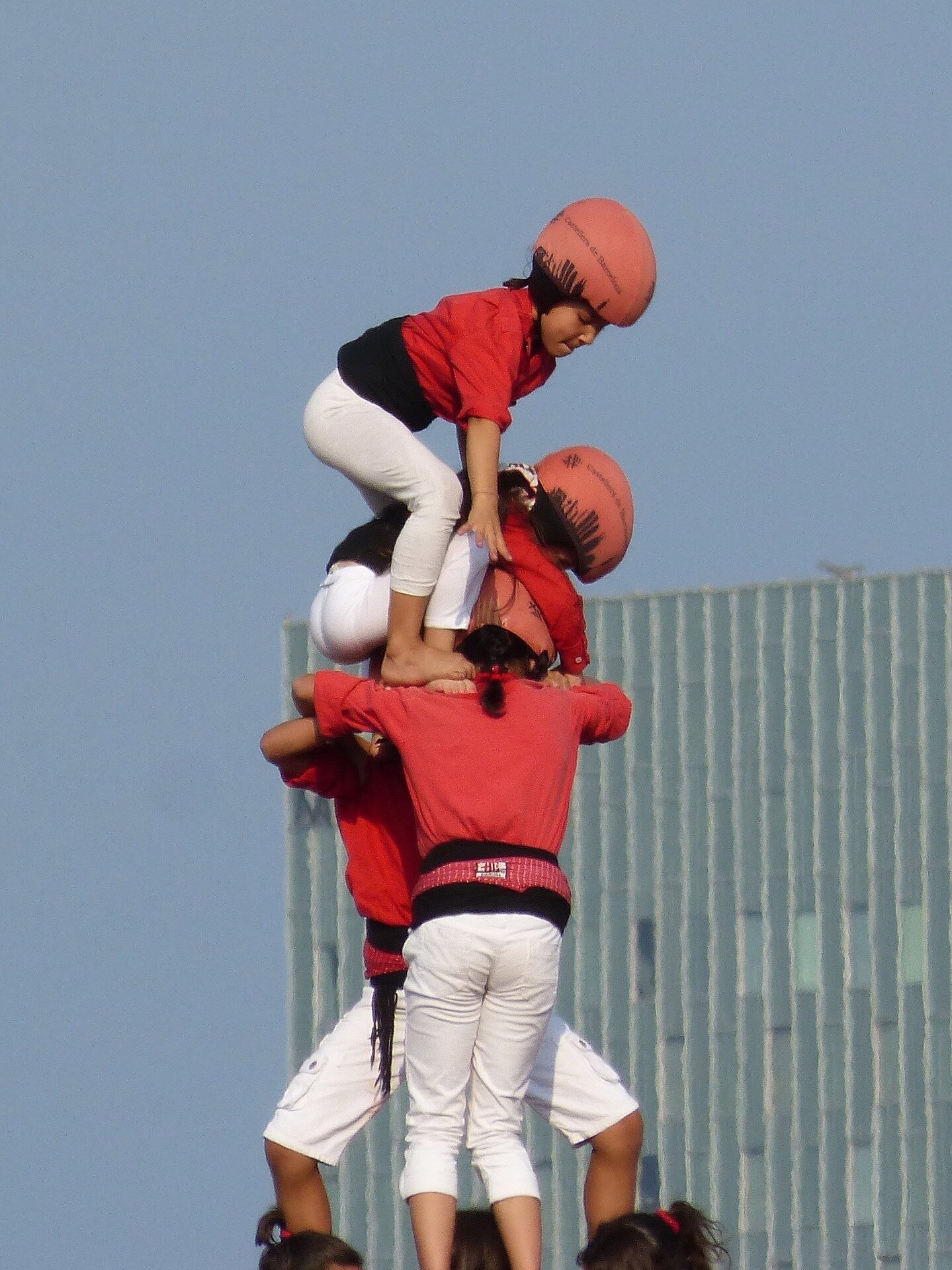 The Economic Argument
The Economic Argument
As you might already know, the Independentista movement is one that is not only built on cultural aspects but on economic ones as well. The region of Catalonia is quite successful economically speaking, especially in comparison to other regions in Spain. Due to this success, there is a fair amount of talk about how Catalonia does more for Spain than vice-versa and that the region would be better off if it was independent from Spain. Of course, there has been some backlash to the idea that Catalonia is holding up the rest of the country (or, even, that other regions are ‘lazy’).
As the main part of our experience is in Andalusia, one of the least economically developed regions, we can see some of this backlash. For example, in Andalusia, education is less expensive than in Catalonia as it receives more government subsidies (a decision made, principally, by the regional government). This has caused tensions, even among family members living in different regions, as people question where the money actually comes from and how it should be used. As most of us have experienced, the more negative the responses, the more people feel the need to defend themselves.
Due to the division of regional and Spanish governments, we can see how these issues about where different regions spend money impacts the conversation. In recent years, the political movement is based on a bit of a power play between the central and regional governments. As Catalonia wants more independence, the central government wants to control the region more. However, it is not as simple to understand as what you hear in the media.
How you should educate yourself
There have been several incidents in the past couple of years that have called even more attention to this desire for independence. The ‘illegal’ Liberalista referendum on the first of October of 2017 and again in December of the same year and the reaction to it has caused a scandal and many people, from both sides, are quite unhappy with the results. In addition, the legal consequences of the referendum have been harsh and have gone against the beliefs of many people involved (again, both for those voting for and those voting against the separation).
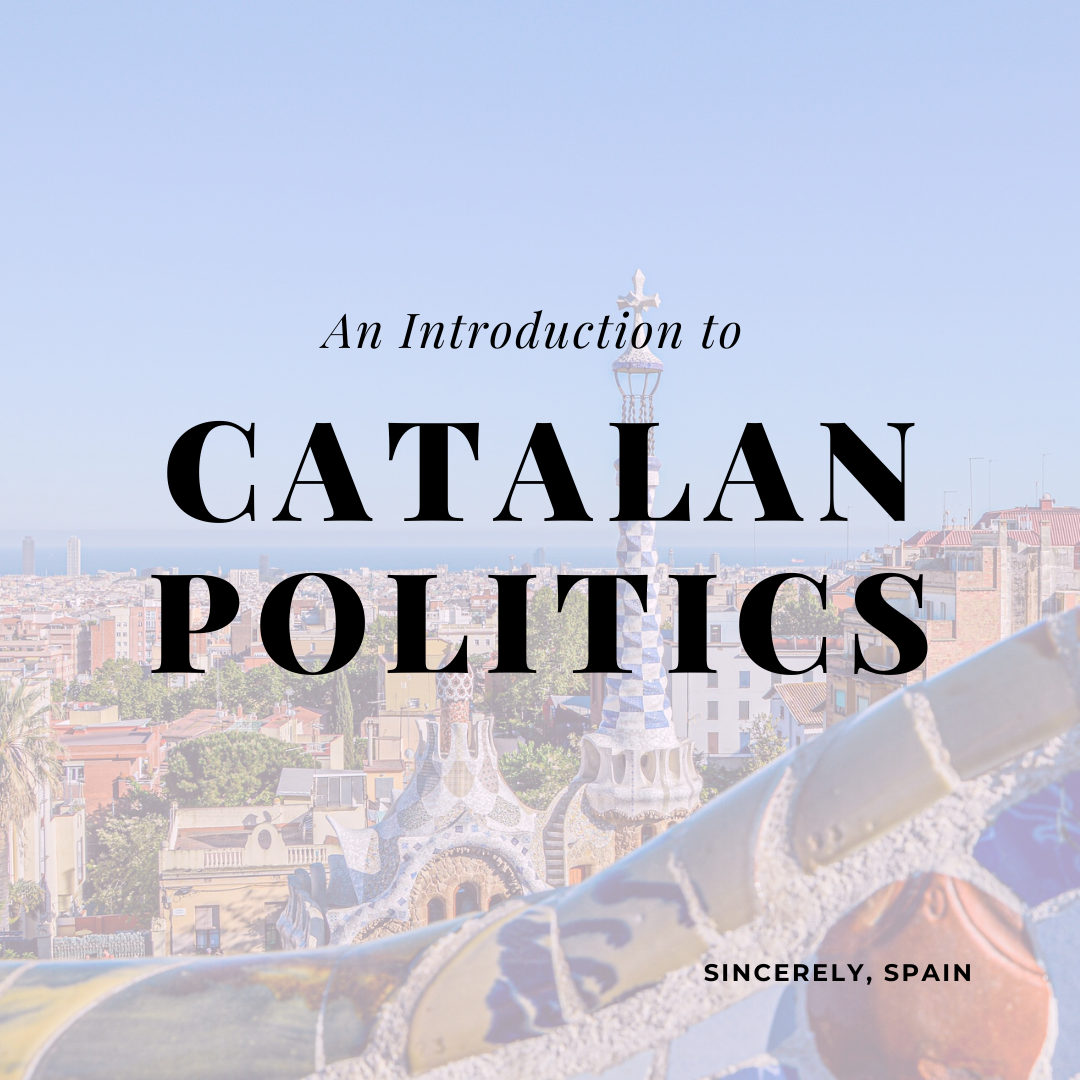 Everywhere you go you will find that policy and media manipulation is highly linked to the interpretation of a situation on all sides. With the quest for independence in Catalonia, this is no different. Media representation is strongly linked to the perception of whoever is in charge of the source. That means that reading articles written by Catalan authors will differ to those written by Andalusians. Therefore, reading international, national, and regional newspapers will give you different information on the topic. If you are not Spanish, we recommend informing yourself with a variety of different sources so that you will be able to understand more than one side of the story. And, if you are Spanish, please share where you get your information regarding the Catalan independence movement in the comments!
Everywhere you go you will find that policy and media manipulation is highly linked to the interpretation of a situation on all sides. With the quest for independence in Catalonia, this is no different. Media representation is strongly linked to the perception of whoever is in charge of the source. That means that reading articles written by Catalan authors will differ to those written by Andalusians. Therefore, reading international, national, and regional newspapers will give you different information on the topic. If you are not Spanish, we recommend informing yourself with a variety of different sources so that you will be able to understand more than one side of the story. And, if you are Spanish, please share where you get your information regarding the Catalan independence movement in the comments!
Sincerely,
Spain


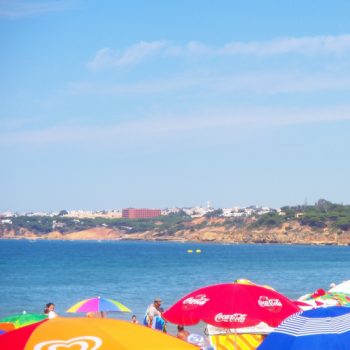
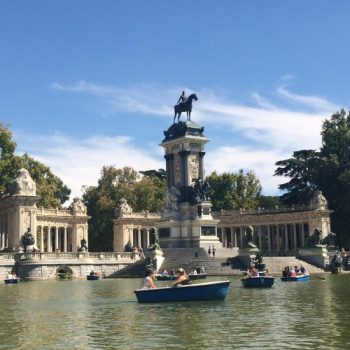

4 Comments
mary_lmm@hotmail.com
I born in Spain and I don’t live in Catalonia but I have great part of my family living in Catalonia. Some people can tell that I am half Spanish and half south American and it will be true too. I married with a Danish man and I am proud. Since I was a child I have been every summer living Catalonia (2 months every year). I went through this mentality change in Catalonia and I have seen the change of the people. They were more friendly when I was young that they are now and I am really sad about it because I can’t understand the reason.
You are right when you told people prefer to speak to you in English than in Spanish, they do the same to me. In each communities of Spain we have different traditions, but we have things in common. But the problem is when some people try to make the different stronger than our common things, when they use the feelings to provoke extremist reactions, when some people think that they are better than the other one.
Before this movement you can speak about politics with my family from Catalonia and make fun of the different situation, now politic is a tabu conversation in our lunchs. I don’t feel free and save to give my opinion in Catalonia. I really don’t know how we have arrived to this point and I hope we can find a solution. But sometimes it looks like anyone wanna find a solution. Please, think about the common benefit, don’t divide the people.
Sincerely, Spain
Dear María,
Thank you so much for taking the time to share your personal experience on this subject! This post is almost two years old now and definitely missing some of the most recent developments that have happened in politics (not to mention that it has been ten years that I haven’t lived in Catalonia).
In addition, as foreigners, we don’t always feel the differences as strongly as you might feel them—as a Spaniard with Catalan family. However, we believe that (respectful) conversation is a good way of sharing ideas. So, again, thank you for your insights to the situation, shared in a respectful way.
Sincerely,
Claudia
lydia@alumni.nmu.edu
My boyfriend is Catalan, and I am American. I, as a hot-blooded American, sympathize with the Catalan quest for independence very much.
I really liked what you wrote- "As most of us have experienced, the more negative the responses, the more people feel the need to defend themselves." This happens in all aspects of life- feeling the need to defend yourself when met by negativity aimed your way.
But anyways, yes- my boyfriend’s very old and ill grandfather, and his grandmother, were beaten with sticks by the Madrid police on that day, the day they all tried to vote. The police didn’t want them voting for independence. Wow. I can’t imagine! There is a documentary on Netflix about this, I think…
I think Catalonia deserves independence. It is a region with great resources, I mean, Barcelona alone supports the whole of Spain with it’s tourism and money making. This is why Spain wants to keep Catalonia to themselves. This is what I’ve heard.
There are so many really good reasons for Catalonia to advocate for independence. I don’t agree with Maria.
"A former Mayor of Girona, Carles Puigdemont served as the 130th President of Catalonia from 2016 to 2017 when he was removed from office by the Spanish Government following the unilateral Catalan declaration of independence."
This guy was (is?) in a self-imposed exile in Belgium after the German justice refused to extradite him to Spain. I think his family isn’t with him, too- how sad. I don’t know the whole story, but I’m sure this was all because his beliefs differed (and in the Catalan way) from the government’s. As for the Catalonian people, these people are very friendly. I love my boyfriend and their family, they are incredibly warm, caring people. <3
Sincerely, Spain
Dear Lydia,
Thank you so much for reaching out and sharing your experience. We do try to share politically neutral posts because there is so much we still don’t understand but we do think the basics are important to share. However, we definitely think it is important to get different perspectives to learn and you sharing your opinion helps the conversation grow. Thank you for your respectful contribution!
Best wishes,
Dani and Claudia